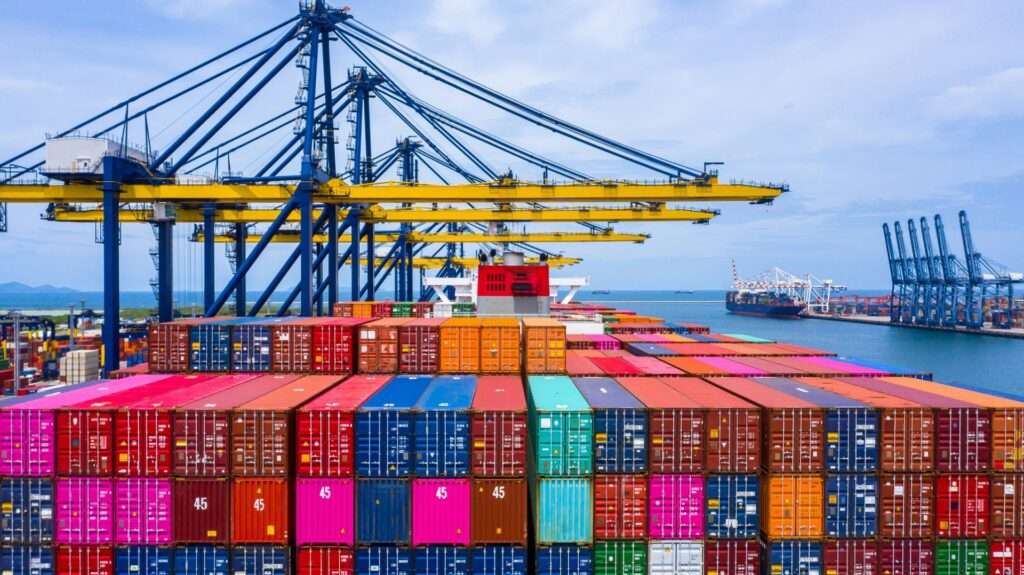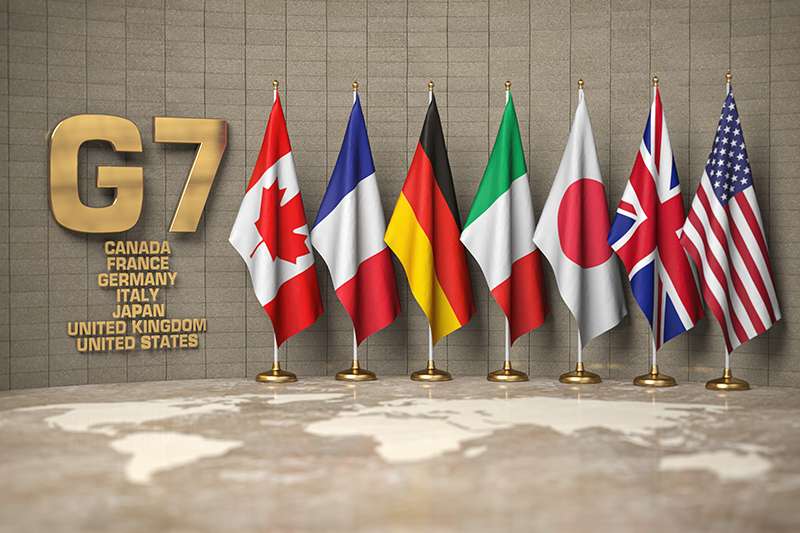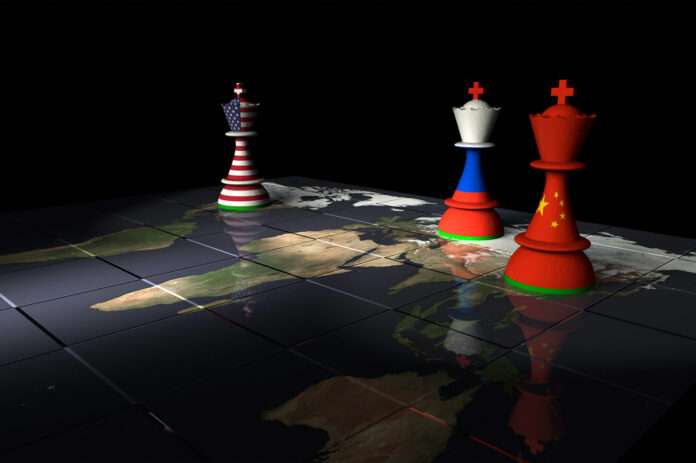Context
From time to time there is a need to ascertain the status of global Balance of Power, is it in equilibrium or moving in the favor of one or the other power. While the global Balance of Power and the associated Spheres of Influence are not the only construct to assess power dynamics–they are the most prevalent presently.
In this conceptualization, usually empires or states are either emerging – challenging the established powers or coalescing with them– and deemed to be either ascending or descending in ranking. It is primarily based on a zero-sum world view i.e. the gain of one is at the expense of the other. It visualizes the world as having limited resources which need to be competed for, controlled and leveraged.
Cold War and War Against Terror
The Cold War got triggered soon after the end of World War II, between US dominated Western alliance and the USSR, and is an illustration of how the balance of power tussles usually playout. The Western alliance came out victorious as the USSR collapsed in the aftermath of the Afghan debacle of the 80s. This was followed by a period of calm – or as some would call, the emergence of a unipolar world led by the US.
However, this relative tranquility did not last for long. 9/11 disturbed the calm that prevailed since the collapse of USSR. It appeared that the Islamic extremists were planning to upend the global order and the nation-state system – which according to them was unjust and established on the ashes of the Ottoman Empire.
As the Global War Against Terrorists (GWOT) progressed, it bifurcated along extremists with global ambitions such as Al Qaeda (AQ) and ISIS (Daesh) – and others with local and regional grievances, like the Afghan Taliban, Baloch Liberation Front and Baloch Liberation Army, Kurds, or Al Shabab. The Kurds go by different names depending on which state they exist: YPG in Syria, and PKK in Turkey. Turkey accuses the West of supporting PKK and YPG.
While the GWOT is by no way over, with the passage of time it became apparent that balance of power tussles had infiltrated and became intertwined with the GWOT, especially when it came to extremists with local or regional grievances. Alarmingly, some of these regional groups also assist AQ and ISIS – and are also known as ‘AQ and Associates’ or ‘ISIS and Associate’.
For example, the deal between the Afghan Taliban and the US in the form of Doha Agreement–was only sealed after guarantees that they will delink from AQ. Moreover, the Afghan Taliban will not support groups like TTP (Tehreek e Taliban Pakistan) – or allow for the use of Afghan territory to launch attacks against other countries, like Pakistan and India. The discovery of Ayman al-Zawahiri in Kabul, and resurging TTP activities in Pakistan, suggest the Afghan Taliban have renegaded on both terms.
Globalization, COVID-19, and Emerging Powers
While the US was paying in blood and treasure in GWOT, emerging powers like China and Russia, had no such stakes, even though they cooperated in the Campaign against Extremism. Moreover, globalization was further strengthening the economic wherewithal of the emerging powers, with Western multinationals facilitating this transfer of wealth. This became the fuel for populist rhetoric spewed by leaders like Donald Trump under the mantra of Making America Great Again (MAGA), which was later adopted with modification by President Biden and naming it ‘Made in America’. Under Biden’s approach, the centrality of Europe was revitalized, which previously faced neglect and acrimony under Trump.
In the wake of GWOT, the crux of American concerns stem from a sense of exploitation at the hands of allies, and thus confusing the ability to clearly define strategic enemies. That was rectified in the subsequent National Defense Strategies, declaring that global adversaries, such as China and Russia, need to be confronted and contained in different spheres of influence. In consideration of the above context, the economic order that is making the adversarial emerging powers stronger also needs to be re-engineered.
With many other unfavorable affects, COVID-19 aided the disruption of supply chains related with globalization. The tense ties between US and China, tit for tat sanctions, and tariff battles, have taken a toll on American business and consumers. Nonetheless, there is an attempt to reorient global economic and security order to make it more beneficial for the US and its allies – and detrimental for those showing inclination towards adversarial rising powers.

European Spheres of Influence, Ukraine, and China
Europe is one of the most important spheres of influence for the US and critical to its global power projection. However, the dependence of Europe on Russian energy resources, accompanied by economic penetration from China, was gradually eroding American sway and jeopardizing the raison d’être for NATO.
Alarmingly, China overtook the US as EU’s biggest trading partner in 2020. While US and UK were the largest export market, the trade volume has been consistently dropping. US witnessed a drop in imports of 13.2% and export of 8.2%. In 2019, EU trade volume with US stood at $746bn and decreasing to $671bn in 2020.
In addition, after seven years of negotiations, China and EU agreed on an investment deal that came to be known as the Comprehensive Agreement on Investment. Because of Chinese support for the Russian position on Ukraine, tensions between EU and China continued mounting, and as a consequence the deal could not be ratified. Not only that EU imposed sanctions on China, which were reciprocated, for human right abuses in Xinjiang.
European powers are caught in a dilemma; they do not want to economically distance themselves from China – or appear to be working at cross-interests to the US. While aligning with US on Ukraine, they are paying heavily for shortage of energy resources due to dependence on Russia. On the other hand, the US realizes that in order to have maximum impact on China and Russia, Europe would have to act in parallel.
According to a CNN article: The COVID-19 pandemic, Russia’s invasion of Ukraine, and tit-for-tat sanctions between China and EU lawmakers have strained relations since. The United States, which imposed controls on exports of semiconductors to China in October, is reportedly exerting pressure on Europe to adopt a similarly hard line.”
The same article quotes Ricardo Borges de Castro, associate director at the European Policy Centre, as stating.
“I don’t see [the EU’s strategy] as a decoupling strategy. I think the EU strategy, for the moment, is a diversification strategy… the lesson [from Russia] is that you cannot have a single provider.”
Two leading European powers, Germany and France, seem to illustrate this strategy. UK on the other hand, since Brexit, has acted most aggressively on decoupling from China and restricting access to Chinese businesses and technology.

The German Chancellor Olaf Scholz visited China in November, the symbolism suggests they want to continue doing business, what is known as ‘Business First’ approach, despite pressure from the US. He was the first leader of G7 nations to visit and the critics point out to lack of cohesion within EU. Chinese and German economies are broadly connected, and China is a key market for German machinery and automobiles. Olaf also agreed to Chinese investment in its leading terminal, Hamburg Port.
The French leader is expected to visit China in January but before that Macron visited the US where he had extensive talks with his American counterparts in November. While France shares US concerns on Ukraine and China’s aggressive positioning in the Indo-Pacific, Biden’s Inflation reduction Act (IRA) has sent alarm bells ringing in Europe and France. Europeans, including France, consider the Act which was signed by Biden on August 16, as protectionism.
The law provides $370bn of green subsidies towards manufacturing of wind turbines, solar panels, microprocessors and electronics vehicles. Moreover, the most controversial part of the bill is that it offers tax credit of $7,500 to American buyers of cars manufactured in the US and locally built batteries. Reportedly Macron stated: “I think that this is not in line with the rules of the World Trade Organization and that it is not in line with friendship.” Biden and Macron agreed to continue discussions and minimize the negative impact of the IRA.
Conclusion
Europe represents the epicenter for the tussles of the balance of power, which then transfuses into other regions of the world, to be examined in future articles. COVID-19 has facilitated the upending of the existing supply chains – and provide an opportunity to reorient them and prevent them from benefiting global adversaries such as China and Russia.
Moreover, climate change has become another factor to be used as a leverage – in terms of resources and technologies needed to address its negative consequences.
Just as in Europe, existing spheres of influence are also in friction in other nations – and its likely will be tough going for their respective citizens economically. While the developed nations strive to protect their economic and financial interests – it’s going to be a particularly rough ride for the developing and underdeveloped nations. This will result in deteriorating social order and mounting political polarization – as power and political alignments change at the local level. Sadly, many may not be able to adapt to the economic and security flux – and tugs and pulls of the shift in the global balance of power – in a timely fashion.




